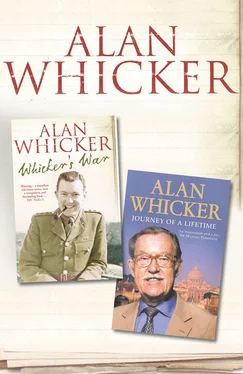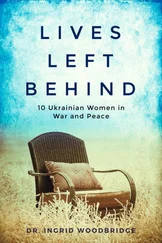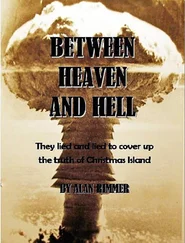1 ...7 8 9 11 12 13 ...25 On the continent of Europe I took my first sodden steps on the long march towards the Alps. So far, so surprisingly good.
At that stage of the war nobody knew much about assault landings, about storming ashore and facing mines on the beaches and machine guns in pillboxes backed by mortars and artillery and bombers. Despite hesitant or invisible opposition, there was a new naked sensation. Standing tense on that soft warm beach and gazing around I was ready to burrow into the sand for protection. I felt exposed and enormous – a perfect target. I could sense a million angry eyes were watching me over hidden gun barrels, trigger-fingers tightening. Who would fire first?
We had been prepared for everything – except an invisible enemy, and silence.
Before any hostility arrived, we scrambled off the beach, moving between white tapes the Royal Engineers were already putting down to show where mines had been cleared. Then we set about filming the landings.
On our beach, landing troops tried to dry out in the early sun; then formed up and pressed inland through the fields, interrupted occasionally by Italians who wanted to surrender to somebody – please!
Beachmasters were already in control. Tank Landing Craft disgorged enormous self-propelled guns, armoured bulldozers and Sherman tanks. RAF liaison officers talked to their radios. The Navy flagged craft into landing positions. One LST was on a sandbank, another churning the sea and trying to tow it off. Three-ton amphibious DUKWS – great topless trucks that swim – purred purposefully between ships and shore. The first prisoners arrived back on the beach, and wounded were carried into regimental aid posts. Royal Engineers were clearing mines and Pioneers laying wire netting road strips. Military police came ashore and began to control landing traffic. Bofors crews took up defensive positions and dug in. Fresh drinking water was pumped from LST tanks into canvas reservoirs. Petrol, ammunition and food dumps were started. A de-waterproofing area for trucks was marked out. Pioneers started to build and improve tracks and work on Pachino airstrip, which had been well ploughed by the Italians; by midday it was ready for use. All that was what the months of planning had been about.
We filmed the Eighth Army getting set to go places – and so far, to our relief and amazement, few shots had been fired in anger. XIII Corps took a thousand prisoners, that first day. I saw some of our invading troops with tough NCOs actually marching smartly up the enemy-held beach in columns of three – not a scene you expect to see on the first day of the re-conquest of Europe. What – no bearskins?
We had been braced to face the fury of the Wehrmacht. In fact, all we faced were a few peasants and goats, and the usual hit-and-run Luftwaffe dive-bombers. It was quite a relaxed way to start an invasion. So far we had on our side most of the military strength and all the surprise, and as the troops came ashore some of our hesitant Italian enemies – local farm workers – waved and smiled. It’s always comforting to have the audience on your side.
Towards the evening of D-Day I rounded up a few sergeant-cameramen who had landed nearby with other units and we settled in a field for our first European brew-up. On went the tea in its regulation sooty billycan and the bacon sizzled, supported by our first trophy of war: fat Sicilian tomatoes. A few Messerschmidts came over and did what they could, bombing ships and strafing beaches, but I don’t think my new Scottish friends of the 51st Division suffered many casualties. Our surprise had been total.
At dusk, finding our blankets were still somewhere at sea, we settled down on the damp rocky soil of the tomato grove and in an unnatural silence, slept uneasily.
Such lack of enemy opposition was unexpected – and so of course was the hidden fact that, after this first easy day, it was going to take another 665 days to fight our way up the length of Italy, from Pachino to the Swiss frontier by way of Catania, Messina, Salerno, Naples, Anzio, Rome, Florence, through the Gothic Line and out into the Po Valley, to Milan and Venice … and victory?
I did not know that I faced 22 months of battle that was going to provide some of the worst experiences of my life – and a few of the best.
THEY ENLISTED THE GODFATHER…
The stunning thud of bombs shook us awake. The lurid nightscape was bright as day. We jumped up in alarm, our shadows stretching out before us. The Germans had finally reacted.
Their night bombers were dropping flares and hunting targets. They had plenty. We covered the coastline and were impossible to miss. Attempting to hold them off, thousands of glowing Bofors shells climbed up slowly in lazy arcs through the night sky and into the darkness above the flares. They were pretty enough and encouraged us, but did not seem to worry the Luftwaffe. The invasion fleet and the beaches were bombed all night.
There may be no justice in life, but in battle the percentages go even more out of synch. For instance, my batman-driver Fred Talbot was a regulation cheery Cockney sparrer and peacetime bus driver. We saw a lot of war together, without a cross word.
During the planning for the invasion he had been much relieved to learn that, while I was directing our team and carrying my camera along with the first wave of infantry ashore, when I could reasonably expect to get my head knocked-off … there would be no room for him. He would have to stay behind with our loaded jeep and sail across in the relative comfort of a larger, safer transport ship. This would land with some dignity a day or two later, when hopefully the shot ‘n’ shell would have moved on. It was just his good luck, and he was duly thankful.
However on invasion day my first wave went in, as I said, to mystifying silence. The worst we got was wet. Meanwhile, Driver Talbot’s ship, preparing to follow the fleet to Sicily and proceeding through the night at a leisurely pace from Sousse towards Sfax and well behind the armada … hit a mine and sank immediately.
Talbot spent some hours in the dark sea before being picked up, and another ten hours in a lifeboat. He was one of the few survivors.
When he caught up with us some days later he was rather rueful about the injustice of it all. I passed a few unnecessary remarks about life sometimes being safer at the sharp end, but understandably Talbot was not amused.
My relief at his return was clouded by the knowledge that our jeep, loaded with everything we possessed, was at the bottom of the Med. Down there in the deep lay the Service Dress and gleaming Sam Browne I had worked so hard to achieve and only worn a few times. Now I had nothing resplendent and should have to attend what I anticipated would be the vibrant social scenes in Rome and Florence in my invasion rig – a bit basic and underdressed for any hospitable Contessa’s welcoming party … War can be cruel.
Then there was my religiously-kept wartime diary. Had those notes brimming with excitement, dates, facts and figures not become an early casualty of war … had that mine not destroyed my tenuous literary patience at a time when life was becoming too busy to sit and think and remember and write … had that ship not sunk – you could have suffered a version of this book half-a-century ago!
Strangely, having lost everything but my life, I felt curiously light-hearted – free and fast-moving. I would recommend travelling light to any Liberator. You sometimes approach this silly carefree mood when an airline has lost your luggage in some unfamiliar city and suddenly you have nothing to carry, or wear, or worry about.
Talbot and I met only once after the war, late one night going home on the District Line, Inner Circle. He was in good shape and told me he was working in Norwich as a ladies’ hairdresser.
Читать дальше












